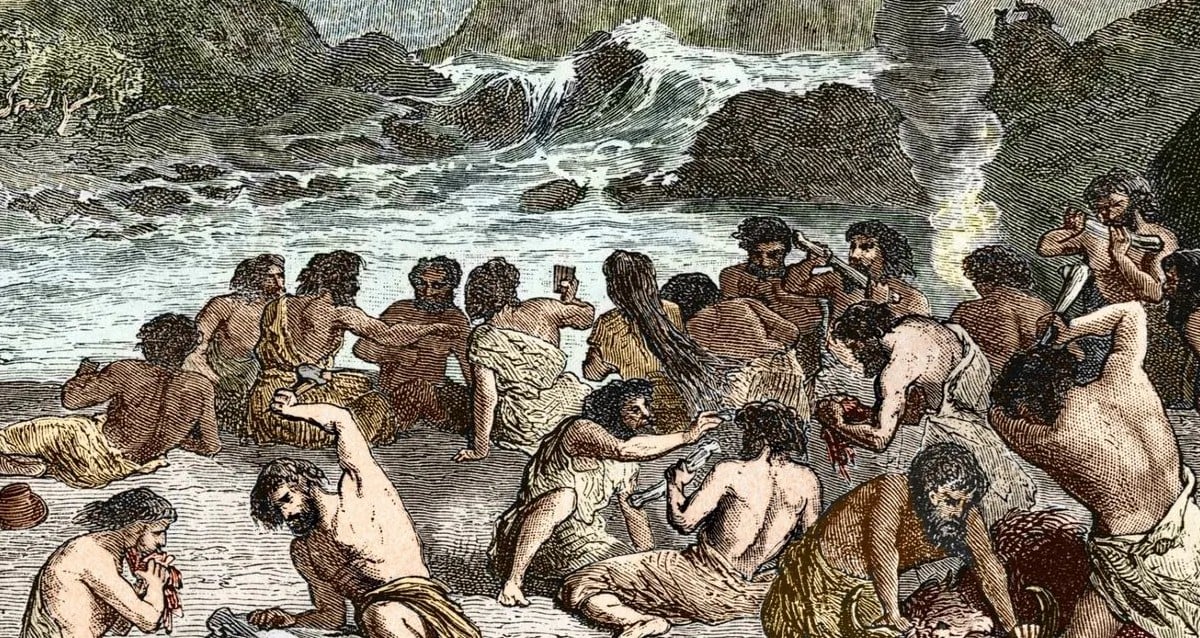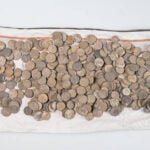Ancient Secrets Unearthed: Whale Bones Reveal Humanity’s Earliest Tool-Making Mystery
Imagine stumbling upon 18,000-year-old tools made not from wood or stone, but from the very bones of giants of the sea — whales that washed ashore along the Bay of Biscay. Sounds like the opening of a prehistoric thriller, right? For decades, curious researchers found these bone relics tucked away in caves scattered across France and Spain, tools used to hunt reindeer and bison. Folks suspected whale bones were the source, but it wasn’t until recently that science gave us the hard proof: these are, in fact, the oldest whale bone tools ever documented! Carved by Stone Age hands long before seafarers danced with the waves, these simple artifacts offer a jaw-dropping glimpse into how our ancient ancestors cleverly scavenged stranded whales to fashion tools essential for survival. It begs the question — who needs modern technology when you’ve got an ocean’s worth of resources just waiting for the taking? Dive in and uncover the story behind these mesmerizing treasures and how they reveal a surprising bond between early humans and the sea. LEARN MORE
The bone tools are between 14,000 and 20,000 years old and were collected from whales stranded along the Bay of Biscay.
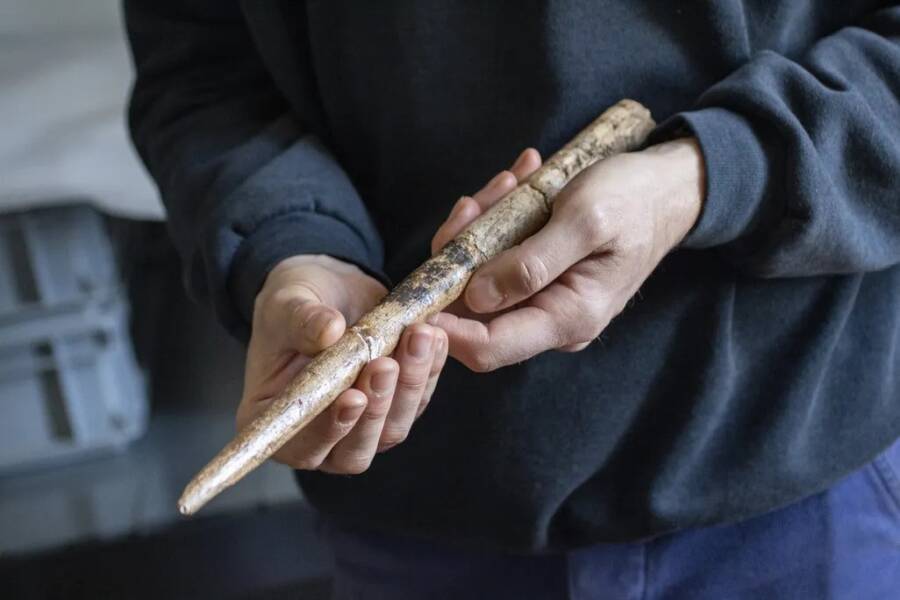
Alexandre LefebvreA spear point made of gray whale bone that is roughly 18,000 years old.
Over the decades, dozens of prehistoric bone tools have been collected from caves across France and Spain. These tools were used to hunt reindeer and bison, and researchers have long suspected that they were made of whale bone. But their theory wasn’t confirmed until recently, when a study of the artifacts confirmed that not only were they were made of whale bones — they were the oldest whale bone tools ever documented.
Carved by Stone Age humans between 14,000 and 20,000 years ago, the bones were seemingly harvested from whales who washed up on shore in present-day Spain and France. The simple tools are a fascinating example of how prehistoric people interacted with their marine environment.
Discovering The Oldest Known Whale Bone Tools
As described in a new study published in Nature Communications, researchers made their discovery by examining 83 bone tools that had been previously discovered in 26 caves and rock shelters along the Bay of Biscay in France and Spain. Researchers had long suspected that these bone tools were made from whales, but they set out to confirm this theory, to identify the whale species, and to calculate the tools’ age.
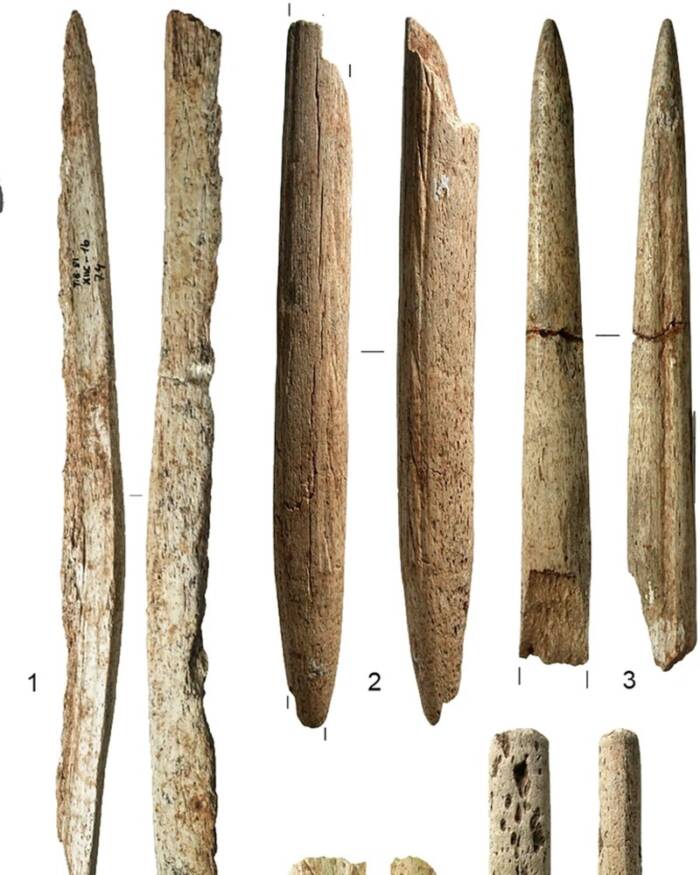
Nature CommunicationsA sample of the whale bone tools collected from along the French and Spanish coasts.
“The discovery of the whale bone objects in itself is not new,” Jean-Marc Pétillon, one of the study’s authors, explained to All That’s Interesting in an email. “What is new in this study is the identification of the whale species and the direct dating of the objects, which was not technically possible when the identification was first made.”
Researchers thus analyzed collagen protein sequences to determine what animal the tools came from. They found that, of the 83 bone tools, 71 were “confirmed as cetaceans,” which includes dolphins, porpoises, and whales. Eight of the bones, meanwhile, were from “large terrestrial mammals,” and there were four bone tools that the researchers were not able to identify.
Furthermore, the scientists were able to identify specific whale species among the cetacean bone tools. Analysis revealed that they were made from the bones of sperm whales, fin whales, blue whales, and gray whales. The bones also included either right whales or bowhead whales, which could not be differentiated.
Radiocarbon dating suggests that these prehistoric whale bone tools are between 14,000 and 20,000 years old, which makes them “the oldest evidence of whale-bone working to our knowledge.”
How Stone Age People Interacted With Whales
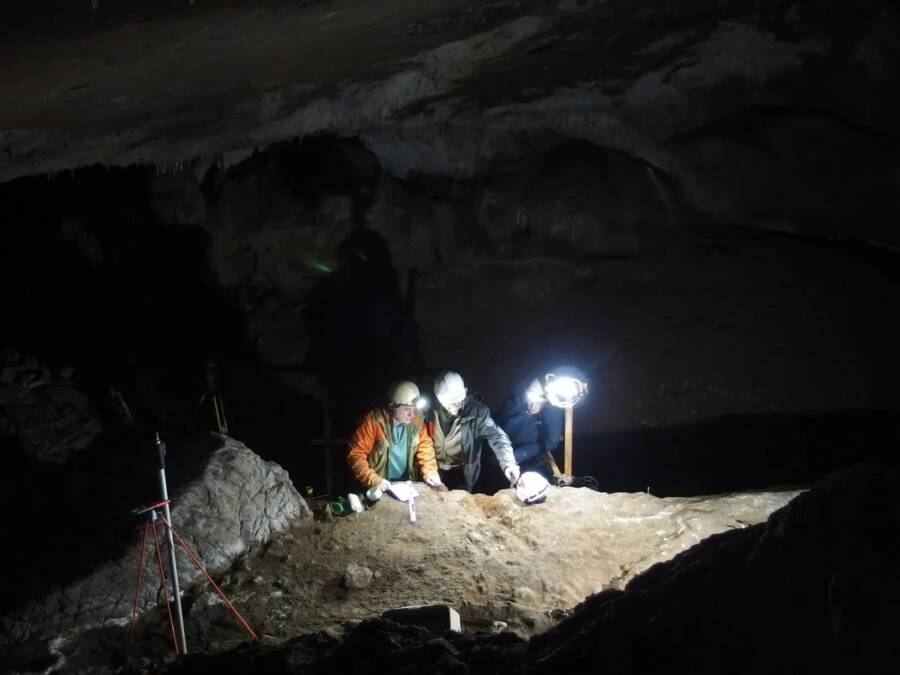
Jean-Marc PétillonResearchers excavating prehistoric whale bone tools in France in 2022.
How did Stone Age people acquire whale bones for their tools? According to the study, “There is no evidence that European Pleistocene hunter-gatherers had the necessary technologies for hunting these species, such as seafaring or multi-barbed points that could have been used as harpoon heads.” Rather, they likely engaged in “passive acquisition methods.”
“Most of the species we identified (Sperm Whale, Blue Whale, Fin Whale, Right/Bowhead Whales) could not be hunted with the techniques of that time, and people were most likely taking advantage of natural strandings,” Pétillon explained to All That’s Interesting. “Scavenging the whale remains does not imply complex technologies or large groups, and it is well within the possibilities of Paleolithic hunter-gatherers as we knew them. This is also consistent with the fact that, in Western Europe, there is no evidence of seafaring before much later, in the Mesolithic.”
Of these whales, prehistoric people seemed to have a particular interest in sperm whale bones, but researchers aren’t sure if that’s because sperm whales were more abundant than other species or because hunter-gatherers sought them out. It’s possible that sperm whales were especially prized among Stone Age societies since they are “the only toothed species” of those identified and have a “long, straight, toothed jawbone that may have been considered as a particularly desirable block of raw material” for making tools.
